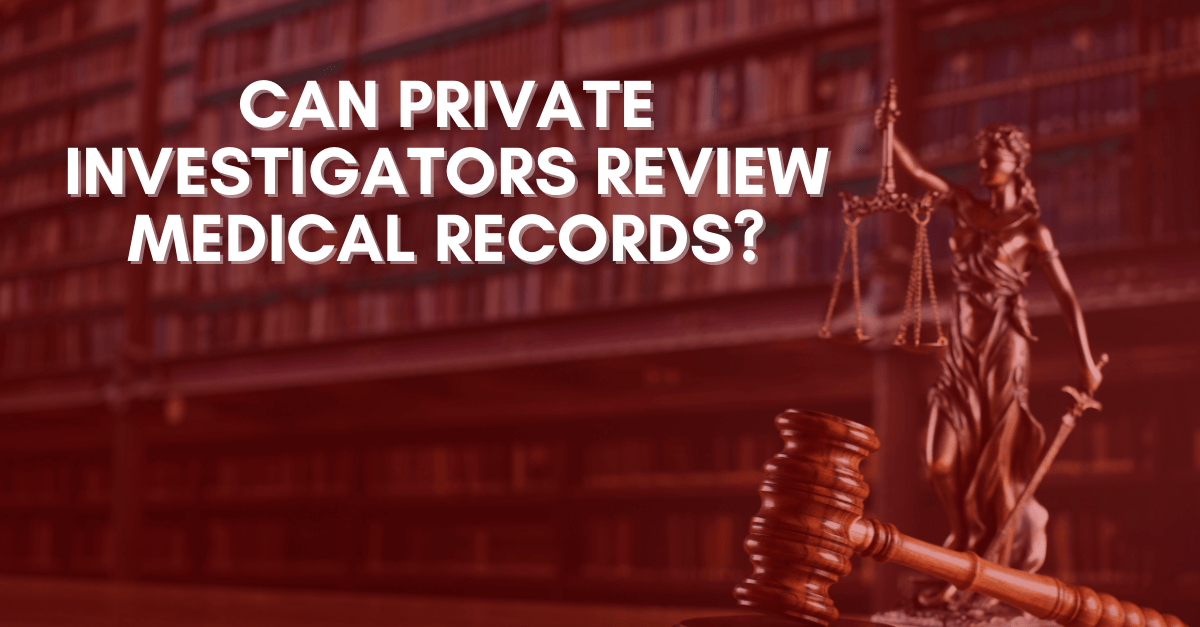The short answer is yes, in some specific cases. Not all cases would require checking a subject’s medical records. However, in those where it would be relevant to the case, private investigators can engage in said process.
Checking a party’s medical records can reveal the motives or even intentions of an individual. Once we are aware of said motivations we can use these to determine how the medical condition may have led to certain decisions taking place that relate to the case.
How can medical records influence a case?
A review of medical records can reveal many important factors in a given case. For instance, they might reveal the influence of a particular drug on an individual. This can be in cases where a doctor prescribed said drug or not. An individual’s behaviour can vary significantly depending on a prescription. Whether it be new or due to not taking said medication.

Private investigators can provide medical records to attorneys in a timely and efficient manner. Additionally, PIs are experienced in preparing this evidence for proper presentation in court. Attorneys can then use said medical records to call a party’s credibility into question. This can be a witness and their motives or otherwise.
Medical records and patient privacy
Something important to note when attempting to access a party’s medical records is their right to privacy. Usually, access to these is only allowed when they are the only way to access important evidence for a legal case.
If all goes well they would willingly provide a signed authorization to release their medical records. However, if they object, and it is necessary to access said information, there are options. For example, submitting a subpoena. Private investigators can efficiently handle this responsibility. They have lots of experience delivering these with due process and tracking individuals down.
Unfortunately, the patient may object to the subpoena. In this situation, a court order would be the final option. However, if a patient has a strong enough reason to withhold their medical information, it could dissuade a judge from issuing a court order.

Speaking in more specific terms concerning a patient’s privacy. Minimum Necessary Standard outlined in HIPAA limits the information healthcare providers can include when providing records. That is to say, to remain compliant with these standards they are only able to release the records containing the information specifically requested and relevant. They must provide the minimum information possible.
This of course holds true in court too, and for these medical records to be admissible in court they must hold to these standards.
If you find yourself in need of a licensed private investigator and their particular set of skills, please feel free to call us. Or simply click on this link to get in contact with one of our team members.









